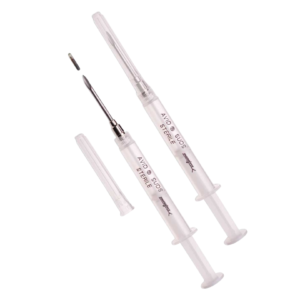The arrival of your new pet is an exciting time but there is so much
to think about during those first few weeks it can often be
a little overwhelming.
Here’s how we can help…
The arrival of your new pet is an exciting time but there is so much
to think about during those first few weeks it can often be
a little overwhelming.
Here’s how we can help…
Vaccinating your pet is a key step in protecting your pet against life threatening diseases, including parvovirus, canine adenovirus and canine distemper virus. These diseases are still diagnosed in the UK, and so pose a constant danger to any unvaccinated animal.
Puppies get protection initially in life from their mother’s milk and then, as they are weaned, this protection wanes, and thus vaccinations are required to maintain it. Typically, we vaccinate puppies at eight weeks old when off to their new homes. A second vaccine is required when at least 10 weeks old, and then boosters annually are recommended.
For more information on dog vaccinations and the diseases they protect against, please click here.
Kittens can be vaccinated from nine weeks old, with a second vaccine required from 12 weeks old, and then boosters annually. Vaccinating your cat is very important for their health and for the control of infectious diseases; not only for your cat, but for the population as a whole. The greater the proportion of the population that is vaccinated, the lower the risk for your cat, even when they are vaccinated themselves.
For more information on cat vaccinations and the diseases they protect against, please click here.
We strongly recommend that all pet rabbits are vaccinated on an annual basis with the combined vaccination for Myxomatosis and Viral Haemorrhagic Disease. Rabbits can be vaccinated ideally from seven weeks of age and yearly booster vaccinations necessary to maintain this immunity.
Rabbit vaccination is available against two fatal diseases – myxomatosis and viral haemorrhagic disease. These are mainly transmitted from wild rabbits, but house rabbits are still at risk as insects are also carriers of both diseases.
For more information on rabbit vaccinations and the diseases they protect against, please click here.



In April 2015, it became a legal requirement for all dogs to be microchipped. Breeders are legally required to microchip all puppies before they are eight weeks old and prior to the puppies leaving for their new home. The breeder should also be registered to the microchip until they transfer the puppy into your name.
It is not yet a legal requirement for cats to be microchipped, but this is due to change! As of the 10th June 2024, cat microchipping will be mandatory.
To find out more about microchipping, please click here.
We recommend that your female dog is spayed either before her first season, or around 10-12 weeks (3 months) after a season. This is when the hormone levels and blood supply to the uterus are normal. The timing of spaying is dependent upon the breed and its behavioural development; hence this should be discussed with your vet on a case-by-case basis.
The age at which a male dog can be castrated is highly variable and dependent upon many factors including breed and behavioural maturity, with the earliest we would look at doing it would be 6 months old. To castrate a dog, both testes should have dropped into the scrotum. (If the testes have not dropped, you should seek veterinary advice.) There is no upper age limit.
If you are considering castrating your dog due to behavioural problems, please contact your vet or dog behaviourist. They can advise if the operation is likely to help or make the problem worse.
To find out more information on neutering your dog, please click here.


Male and female kittens can be neutered from about the age of 4-6 months so long as they weigh at least 2kg.
Neutering offers a number of advantages, especially if performed at an early stage.
To find out more information on neutering your cat, please click here.
Rabbits are social animals and should preferably be kept in pairs or groups, ideally reared together from birth. If opposite gender rabbits are kept together with no intention of breeding, then one or both will need to be neutered from four months old. This principle also applies to same sex pairs too, as rabbits can become quite aggressive towards one another when puberty hits.
To find out more information on neutering your rabbit, please click here.


Here at Rutland Veterinary Centre, we pride ourselves on offering our own in-house puppy socialisation classes run by our Registered Veterinary Nurses.
Puppy parties are a great way for puppies and new owners to familiarise themselves with the practice environment and allows them to express normal behaviours in a safe, hygienic and monitored manner. With our nurses on hand to answer any questions and cover basic puppy care such as diet, preventative health care and dentistry, it is the perfect opportunity to ensure that we are giving our puppies the best start in life.
Puppies can attend if they have had their first vaccination, seen one of our vets, and are between 8-16 weeks of age.
Find out more about our Puppy Parties by asking at reception!